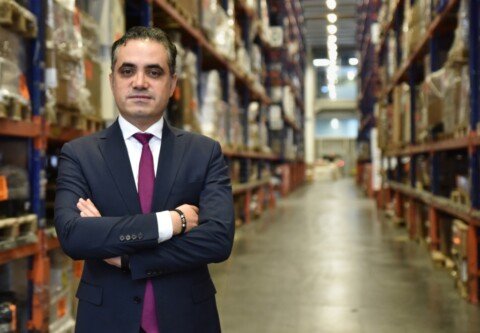Elliott Paige, Director- Air Service Development, Hartsfield Jackson Atlanta International Airport (ATL)
Policy dialogue on Regional Cooperation, Connectivity and Inclusive Development
My vision for the future is to see major air cargo hubs using modern technology to connect airports so that we can streamline trade. This is my idea of promoting what I call “trade corridors”. Airports connected with similar operational and infrastructural standards, cargo community systems that speak to each other providing full transparency for shipments, and formal partnerships agreements can promote trade among this network creating what is effectively a preferred means for moving goods across continents. We already have digitally connected consumers. We now need digitally connected logistical systems to supply these consumers.
It’s all in providing World-Class Services to customers
I recall one ground handler saying to me that his company typically hires more staff than they need in the winter and spring months because they lose the bulk of their staff due to summer heat on the ramp and in the warehouse. The story reminds me of what we mean when we say we have world-class facilities. To me, “world-class” means we are providing optimal service levels to our customers and everyone working in that supply chain. World-class means the infrastructure provides fast and safe delivery of cargo, simultaneously ensuring that staff, our most valuable asset, are comfortable and safe both in the warehouse or on a ramp, whether it’s the cold and rainy winters of the UK or hot and humid summers like Atlanta. This means that warehouses have to be built, or older warehouses retrofitted to make sure staff are not suffering from harsh working conditions. Efficiency in staff care will also lead to efficiency in customer care.
Right Leadership for Right Moves
Digital connectivity and future-thinking leadership are keys to the future performance of the air cargo hubs. Leaders must be selected based on their understanding of the role and connections their company plays in the global supply chain. If CEOs are narrow-minded and only concerned for their annual bottom line, the company will suffer. It will not care about its market, staff, or its connections to make other sectors work. I am always talking to logistics managers of the industries we serve whether in automotive, aerospace, pharmaceutical, or other perishables. Once you have future-thinking leadership, they will, in turn, support the right facilities, digital cargo, material handling systems, staff reward, and training to have the best-motivated team to deliver high performance. Highly motivated staff will offer solutions and innovations to make their work easier, knowing their leader has their back. Technology is important, but the key factor to future performance is leadership that wants to leave a positive legacy for the future.
Product and Service innovations
I have been working feverishly to build a modern air cargo facility for Atlanta. The RFP that made it on the street will likely be a template for other airports to design and build a modern facility in partnership with the private sector. It’s a challenge in a bureaucracy, but I am not giving up. I have spoken to the cargo community, and this is the type of futuristic facility they have always wanted. They want airports to build facilities that are 30-50 years into the future without being obsolete. The airports that upgrade their cargo facilities will become market leaders. However, the world is not a zero-sum game. There is enough business to go around for all of us. We will continue to expand the usage of the airport cargo community system as well as push to build new facilities to support the cargo.
‘Tech Intensity’ a key driver of competitive advantage
The biggest challenge is the adoption of innovations. Stakeholders accustomed to doing things the same way for hundreds of years find it difficult to change. Many are happy with still using paper airway bills, while they would never send a snail mail to Amazon and a check requesting their Christmas gifts. This disconnect amazes me. I think federal requirements will help and I think with the mandatory 100 percent screen of international cargo requirements (ICAO/TSA), the only solution is to regulate that everyone goes digital in support of single window and trade facilitation requirements. TSA can then tap into that system to screen cargo. Once there is a federal mandate, things will change just like when IATA abolished paper passenger tickets in the mid-1990s. There are some airports that are run by innovative people that are already improving their infrastructure and collaborating on technological innovations. They will reap the rewards of first movers in the market entry before the digital requirements become mandatory. I look forward to a future where we can use technology in air cargo with the same fervor we do as consumers.






